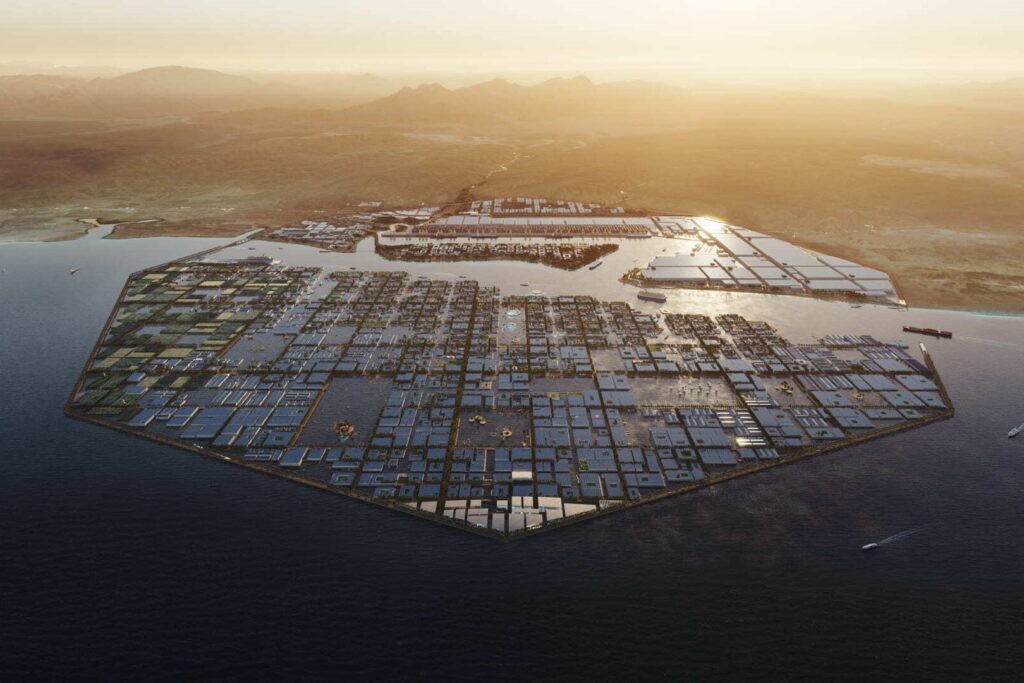The civil engineering world has been abuzz with discussions about the challenges and controversies surrounding mega-projects in the Middle East, particularly in light of Arcadis’ recent decision to wind down its operations in the region. This move by the global design, engineering, and consultancy firm has shed light on the complex landscape of large-scale infrastructure projects in the area, including the highly publicized Neom development in Saudi Arabia.

Arcadis CEO Alan Brookes recently revealed in an interview that the company’s exit from the Middle East was primarily driven by financial concerns and ethical considerations. The most pressing issue, according to Brookes, was the difficulty in securing timely payments from clients. He cited instances where the company received payments for work completed as far back as 2018, despite operating on 30-day payment terms. This significant delay in compensation poses a substantial risk for firms operating in the region, potentially affecting their cash flow and overall financial stability.
Beyond the financial challenges, Brookes highlighted concerns regarding health and safety compliance among Middle Eastern clients. He noted that while many contractors adhered to Arcadis’ stringent safety protocols, some clients prioritized project timelines over proper safety planning and implementation. This discrepancy in safety standards presents a significant ethical dilemma for firms committed to maintaining high levels of workplace safety across all their operations.
The Neom project, a flagship development within Saudi Arabia’s Vision 2030 plan, has been at the center of much discussion and controversy within the civil engineering community. Despite its potential to be one of the largest areas of civil engineering work globally, many firms involved in the project have remained tight-lipped about their participation. This silence has become even more pronounced in the wake of troubling reports about the use of force against local communities to clear land for the project.
Several major civil engineering firms, including Jacobs, Aecom, Bechtel, Keller, AtkinsRéalis, Webuild, Archirodon, and Deme, have been linked to various aspects of the Neom development. However, when approached for comment on Arcadis’ exit and the broader implications for the industry, these companies remained silent. This collective reticence raises questions about the potential constraints and pressures faced by firms operating in the region.
The situation underscores the complex ethical landscape that geophysical, geotechnical, and environmental consulting firms must navigate when engaging in international projects. While the allure of participating in transformative mega-projects is undeniable, companies must carefully weigh the potential risks – both financial and reputational – against the opportunities presented.
Arcadis’ approach to these challenges offers some insights for other firms in the industry. The company has placed a strong emphasis on ethical considerations and sustainability in its operations. Brookes highlighted Arcadis’ commitment to only taking on projects that align with their mission of “accelerating a planet positive future.” This stance has led them to focus on remediation projects for oil and gas companies rather than exploration work, demonstrating how firms can maintain relationships with traditional energy sector clients while pivoting towards more sustainable practices.
Furthermore, Arcadis has made concerted efforts to improve its internal culture and attractiveness as an employer. By setting ambitious targets for diversity and inclusion, creating affinity groups for various employee demographics, and regularly soliciting feedback from staff, the company aims to address the industry-wide challenge of recruiting and retaining skilled professionals.
As the global focus on sustainable development and ethical business practices intensifies, firms in the geophysical, geotechnical, and environmental consulting sectors may find themselves at a crossroads similar to Arcadis’. The decision to engage in or withdraw from certain markets or projects will likely be influenced by a complex interplay of financial considerations, ethical standards, and long-term strategic goals.
The situation in the Middle East serves as a cautionary tale and a catalyst for industry-wide reflection. As firms navigate the intricate balance between pursuing lucrative opportunities and upholding ethical standards, transparency and open dialogue within the industry will be crucial. The challenges faced by Arcadis and the silence of other major players in the face of controversy highlight the need for a collective reassessment of how the civil engineering community approaches large-scale international projects, particularly in regions where financial, safety, and ethical risks may be elevated.

